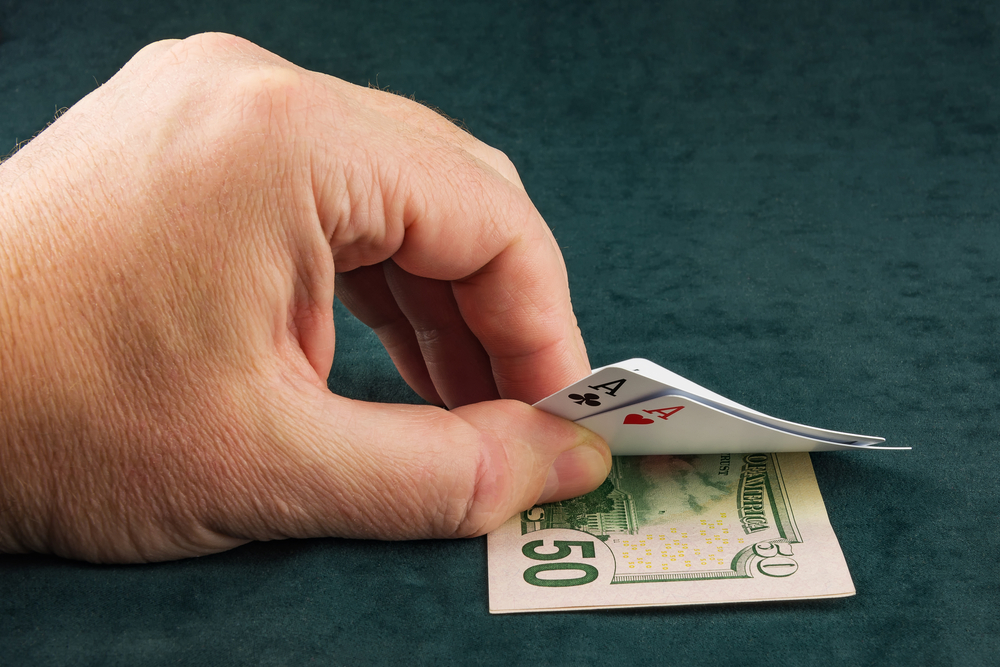Why and when to check-raise in poker

The poker check-raise is one of the most effective tools in the poker player’s toolkit. But, it is crucial to make the check-raise move at precisely the right time.
What is the poker check-raise?
To ‘check’ in poker means to pass on a certain round. In other words, as everyone is going round and placing their bets, a player who ‘checks’ is a player who bets zero. A check-raise is when a player checks in a given round in the hope that the other players will ‘open’ the bet. To open a bet is to be the first person at the table to place a bet in an early round, or to be the first person to place a higher bet if every other player is betting the same, lower amount. To complete the check-raise move, the gambler who initially checked then raises the stake in the same round in which they checked. This causes the other players to place even higher bets. With some players, the ultimate aim of a check-raise is to get other players to ‘shove’ – i.e. to push all of their chips into the middle of the table to propel the game onward to a dramatic conclusion.
When are the best times to check-raise in poker?
There are three key moments in poker when it can be a good idea to check-raise. Of course, you need to be sure that you have mastered this move before you perform it so that you can be confident that you can get good results. Let’s take a look at each of the good reasons that you might have for check-raising.
1. You’re bluffing
If you have a weak hand, a check-raise can be an effective means of bluffing as it makes it look like you are raising your bets because you are confident that you have the strongest hand on the table. As with any poker bluff, however, it is crucial to be sure that you know what you are doing – bluffing can go disastrously wrong and leave you out of pocket if the other players do not act as you had predicted.
2. Your opponent is being aggressive
If your opponent is playing aggressively and trying to drain you of all of your chips, a dramatic check-raise can wrong foot them and also push them to either shove or to back off completely from the game.
3. You think that your opponent is bluffing
Yes, the poker check-raise can be used as a bluff. But, it can also be an effective means of revealing any other bluffers on the table. If you have a hunch that one of your opponents is acting as if they have a stronger hand than they actually possess, then check-raising can force them to do or die: to bluff even more and more furiously or to exit the game.
Bored?
Sometimes, poker lovers will perform a poker check-raise quite simply because they are bored and they want to liven things up. It can be frustrating when all of the other players are betting peanuts and you want to really get the game going and get everyone taking a few risks to make it more exciting all round. At moments like this, it can be tempting to check-raise, but it is vital to pause and to ask yourself: is the risk worth it? If the check-raise is not tactically useful, it is best to try another strategy. There are plenty of other ways to liven up a game of poker.
Try out the poker check-raise in your next game
If you are new to this move, perhaps you can try it out the next time that you play online poker. It can be very interesting to see how the other players react to your check-raise. Sometimes they will act just you predicted by shoving or by folding almost like clockwork. At other times, players can be highly unpredictable. After a little practice at check-raising you will start to find it pretty easy to read a given situation and to know how different types of players will react to your move. As ever, ensure that your bankroll is big enough to absorb any check-raises that backfire and leave you out of pocket. After all, one of the reasons that we love poker so much is that it is never entirely predictable.